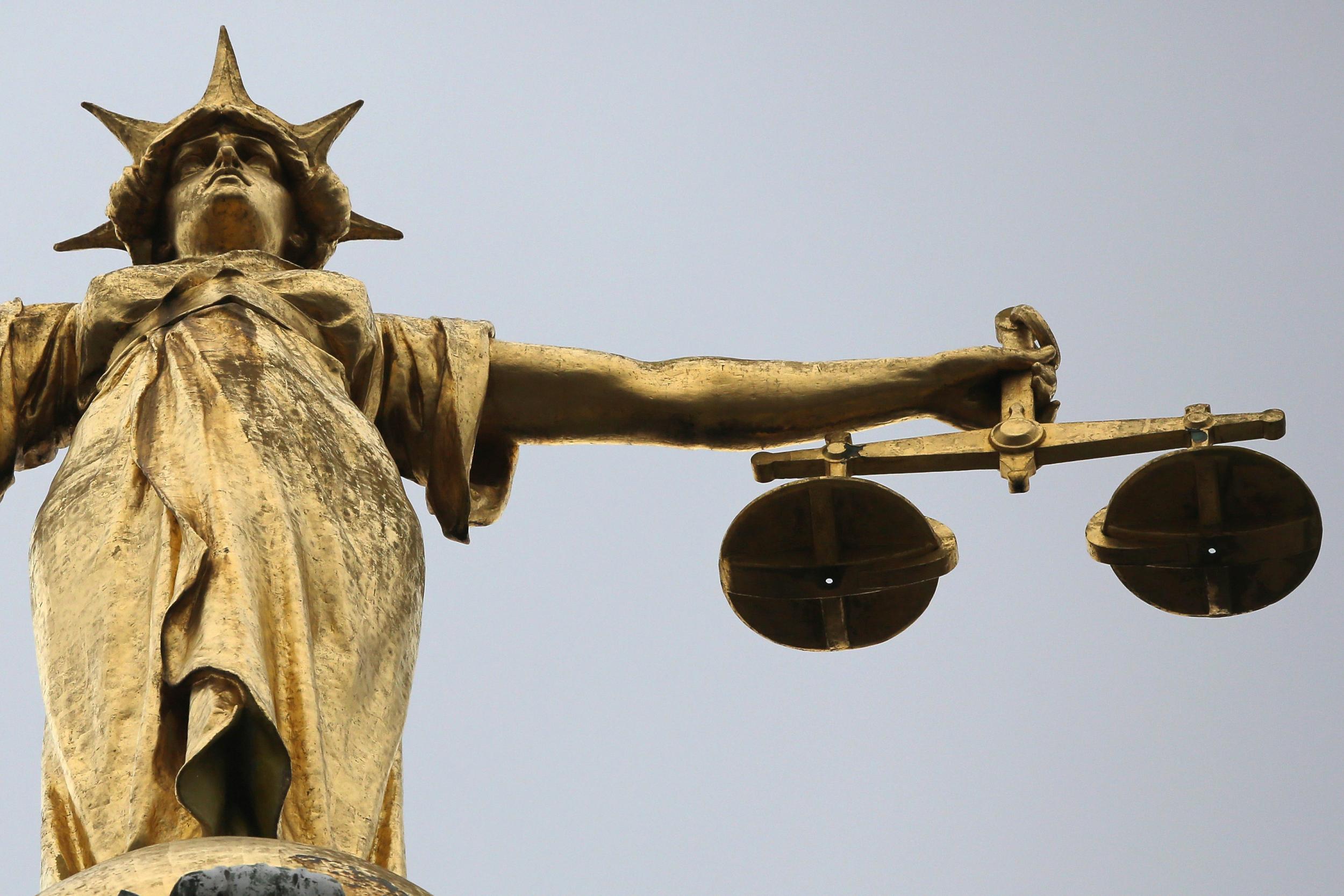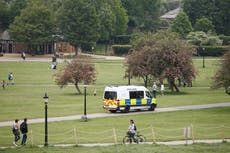All 270 charges brought under Coronavirus Act wrongful, official review finds
Calls for scrapping of controversial law after no successful prosecutions in over a year

Your support helps us to tell the story
From reproductive rights to climate change to Big Tech, The Independent is on the ground when the story is developing. Whether it's investigating the financials of Elon Musk's pro-Trump PAC or producing our latest documentary, 'The A Word', which shines a light on the American women fighting for reproductive rights, we know how important it is to parse out the facts from the messaging.
At such a critical moment in US history, we need reporters on the ground. Your donation allows us to keep sending journalists to speak to both sides of the story.
The Independent is trusted by Americans across the entire political spectrum. And unlike many other quality news outlets, we choose not to lock Americans out of our reporting and analysis with paywalls. We believe quality journalism should be available to everyone, paid for by those who can afford it.
Your support makes all the difference.Every single prosecution brought using controversial powers introduced at the start of the coronavirus pandemic has been wrongful, an official review has found.
The Crown Prosecution Service (CPS) said that all 270 charges under the Coronavirus Act had been withdrawn in court, or overturned after innocent people were convicted in England and Wales.
A spokesperson said that no case of “a potentially infectious person refusing to comply with a lawful instruction” – the test required by the law – had occurred in the year after the act came into force.
The Coronavirus Act was drawn up early in March 2020, at a time when the virus’ threat was mainly perceived to come from abroad, and created powers to stop infectious people arriving in the UK leaving “places suitable for screening and assessment”.
Separate sets of laws, known as the Health Protection Regulations, were later introduced to enforce lockdowns, restrictions on gatherings, the wearing of face masks, quarantine and other measures.
The CPS said its ongoing review also found that 279 charges under the Health Protection Regulations had also been unlawful between March 2020 and March 2021 – 18 per cent of the total.
Overall, 549 incorrect charges were identified out of 1,821 prosecutions using all coronavirus laws, meaning around a third were wrongful.
Suspected breaches of coronavirus laws are mostly punished using fines rather than arrests and prosecutions – but fines that are not paid may result in a criminal charge.
Last month, parliament’s Joint Committee on Human Rights called for the more than 85,000 fines issued to be reviewed.
Members said that despite fines for some offences being as large as £10,000, there were “high rates of error” in issuing and a disproportionate impact on different groups.
“Many more penalties may have been paid by people too intimidated by the prospect of a criminal trial to risk contesting their fine through a criminal prosecution,” the committee added.
The same report said it was “astonishing” that the Coronavirus Act was still being universally misused for prosecutions.
More charges are going through the courts and the CPS said its review would continue.
Its director of legal services, Gregor McGill, said: “All of us in the criminal justice system have had to adapt at great speed to this fast-moving situation, with every effort made to strike a proportionate balance between protecting public safety and the interests of justice.
“The CPS has said throughout that coronavirus rule breaches should be treated as serious given the public health risks and many of these prosecutions were brought against people accused of wider offending. However, it is right that any errors are rectified as part of this review.
“We will continue to work closely with police colleagues and other partners to ensure a consistent interpretation of these laws for as long as they remain in place.”
The CPS said that the Health Protection Regulations errors “typically involved wrong iterations of the rules, which have changed frequently, being used”.
Police leaders have admitted that officers have been confused by rapidly changing laws during the pandemic, regional variations and differences between legislation and government guidance.
Last month, a watchdog found that senior officers were “frustrated” about the lack of notice given ahead of new coronavirus laws and had been unable to provide timely and clear guidance.
HM Inspectorate of Constabulary said that police officers could only be instructed on how to enforce new laws once the government had published the legislation in full, but some forces “first heard of certain changes at the 5pm daily televised government briefings”.
“Sometimes what was announced was only guidance and wasn’t followed up with legislation and associated advice,” said the report.
“This caused some operational difficulties and created confusion among officers and staff.”
Campaigners have long-called for criminal offences created by the Coronavirus Act to be scrapped given the 100 per cent rate of wrongful prosecutions, but MPs renewed the wide package of laws for a further six months in March.
Kirsty Brimelow QC, a human rights barrister, told The Independent there was “no need” to continue using laws brought in using emergency procedures more than a year ago.
She added: “The ongoing unlawful charging and convictions of people under these laws means that they cannot be implemented safely, particularly by police where the majority of the wrongful charging occurs. As this is unlikely to change, the solution is to repeal the laws and bring in one consolidated Coronavirus Act which passes through parliament so that it can be properly scrutinised.”
Parliament’s Joint Committee on Human Rights previously found scrutiny of the act had been fast-tracked “despite the fact the act included some of the most sweeping powers seen in modern times, and interferes with human rights on an unprecedented scale”.
“The government must justify why it is necessary and proportionate for these extraordinary powers to remain law,” MPs and peers said.
“In the absence of any clear evidence to support the retention of these powers, they ought to be repealed.”
Subscribe to Independent Premium to bookmark this article
Want to bookmark your favourite articles and stories to read or reference later? Start your Independent Premium subscription today.



Join our commenting forum
Join thought-provoking conversations, follow other Independent readers and see their replies
Comments